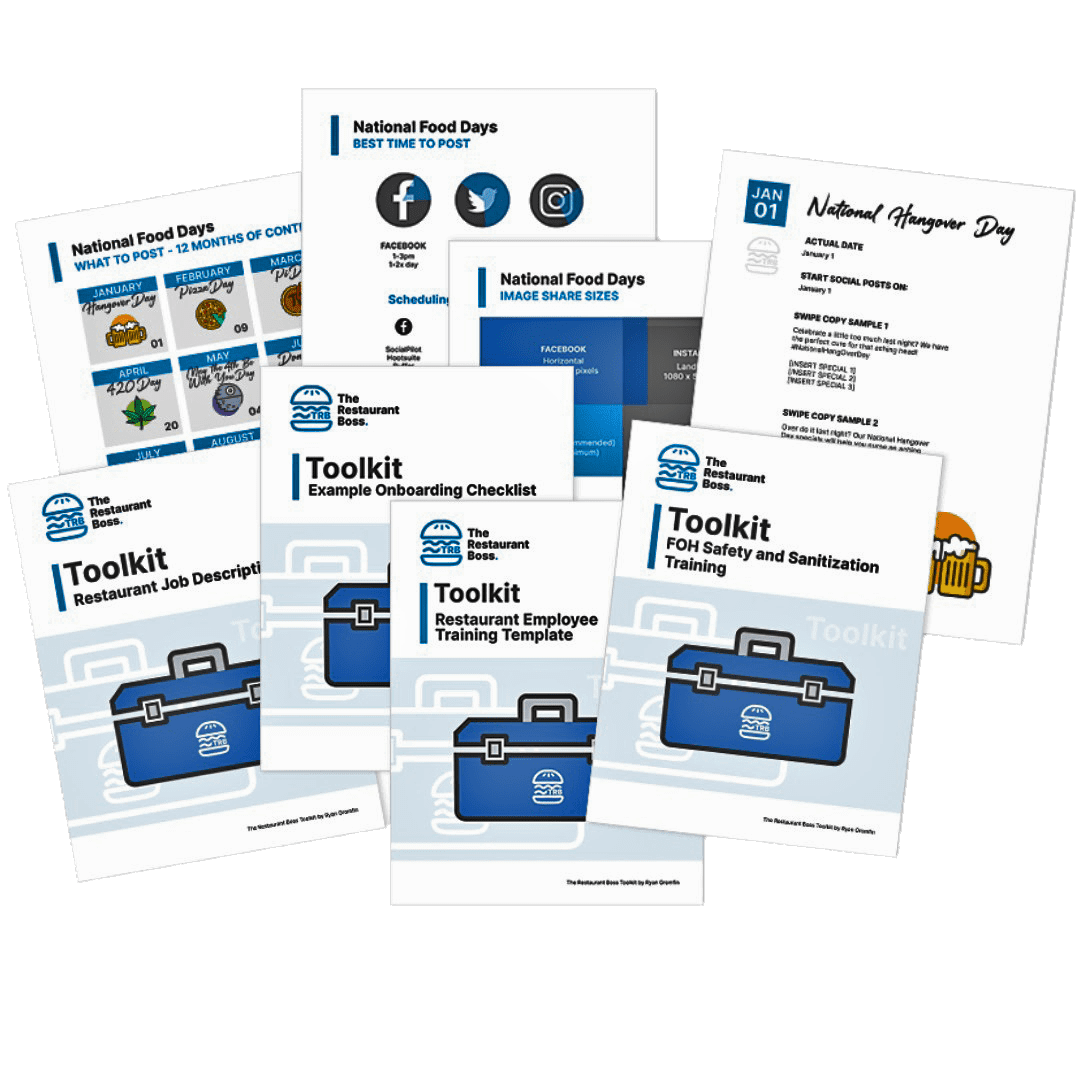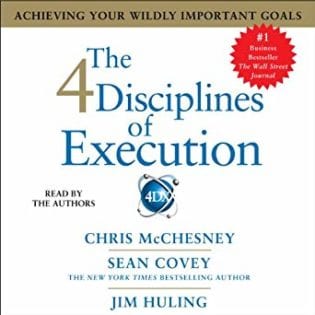Restaurant Owner Book Report: The 4 Disciplines of Execution
It’s book report time and this week, I am sharing a book that goes to the core of the restaurant business. This book is The Four Disciplines of Execution by Sean Covey, Chris McChesney, and Jim Hulling. I hope you enjoy!
Do you enjoy listening to books? I know I do...it's a great way to pass time while in the car or exercising. You can get a FREE TRIAL of Audible, my favorite way to listen to audio books, by clicking on the image to the right.
PODCAST
Read the Video Transcript by Clicking Here...
I’m going to be honest with you, this was a tough one to get through but it is incredible. I don’t think I’ve ever paused or bookmarked an audiobook more than I did this one for little nuggets of great information. The idea behind the Four Disciplines of Execution is that you have to execute. You’ve heard me talk about ideas before. Remember my famous quote, “Ideas are only 40% execution is the other 80%.”? What I mean by this quote is that coming up with great ideas is one part of the equation; executing them is the other. You have to execute on your ideas.
The 4DX:
I’m going to give you the four disciplines of execution they talked about in the book below. But, I highly encourage you to read the full book if you struggle with getting things done, with moving the ball forward, opening that second or fifth or one-hundredth restaurant. If you’re not executing day to day the way you want it’s because of these four things:
- Focus on WIG’s (Wildly Important Goal). The authors of this book, who have done a lot of studies on this, don’t believe that you could have six or seven goals in one year. Like myself, we all believe in having one goal, one wildly important goal.
- Make sure that you’re measuring LEAD MEASURES instead of LAGGING MEASURES. Lead Measures are the things that cause the other things to happen. A Lagging Measure might be something like lowering your food cost. A lot of us are measuring our food, beverage, or beer costs – that is a lagging indicator. The leading indicator might be a waste sheet, if we reduce waste the food cost is going to go down. A leading indicator might be better inventory or tighter ordering. If we measure our cans of beer everyday and make sure that no one is stealing our beer from us, our beer cost is going to go down. While a lot of us love to measure food, beer, or labor costs those are lagging measures. Start measuring your leading indicators instead of your lagging indicators.
- Keep score. Most of us don’t have any kind of a scoreboard. The analogy the authors use in the book is one of their children playing high school football. They were in the New Orleans area and went to a high school football game just after Hurricane Katrina. The scoreboard was out and nobody was paying attention to the football game. Instead, they were all having side conversations because without knowing the score the game is boring. They relate this scenario to your business. What is the scoreboard in your business? What are you measuring that’s important and where are you posting it for the team to see?
- Cadence of accountability. Cadence is like a rhythm. For example, when you ride a bike the RPM’s are the rhythm/cadence that you pedal. What is your rhythm or cadence of accountability? Are you very inconsistent in your accountability? Do you set goals with your team and then not check up with them and then every once in a while get angry or blow up because goals aren’t being met? Or do you have a daily check-in or weekly check-in?
Final Thoughts:
I know this is technical stuff and trust me the book gets even more technical than this, but it is incredible. It’s written by very respected people and a lot of the work that they do goes back to the hospitality industry. A lot of the business books I recommend don’t really go right to the restaurant business; they have a lot to do with business in general. These guys do a lot of work with Marriott, restaurants, hotels, and grocery stores. They cite their case studies and examples in the book.
Have an absolutely wonderful day and I look forward to seeing you with another great video just like this next week.
Read More
Running a Restaurant Isn't Hard
The #1 complaint in restaurant management is poor employee performance. If you’re not following this simple 5-step plan to train your employees, you’re never going to get the results that you want from them …ㅤㅤㅤ
Busy Is Killing Your Restaurant
Are you busy? There are things you’re doing all day, every day in your restaurant and it’s those things that are going to put you out of business. There are 4 things you can do today to battle the busy inside your restaurant …
Follow For More:









